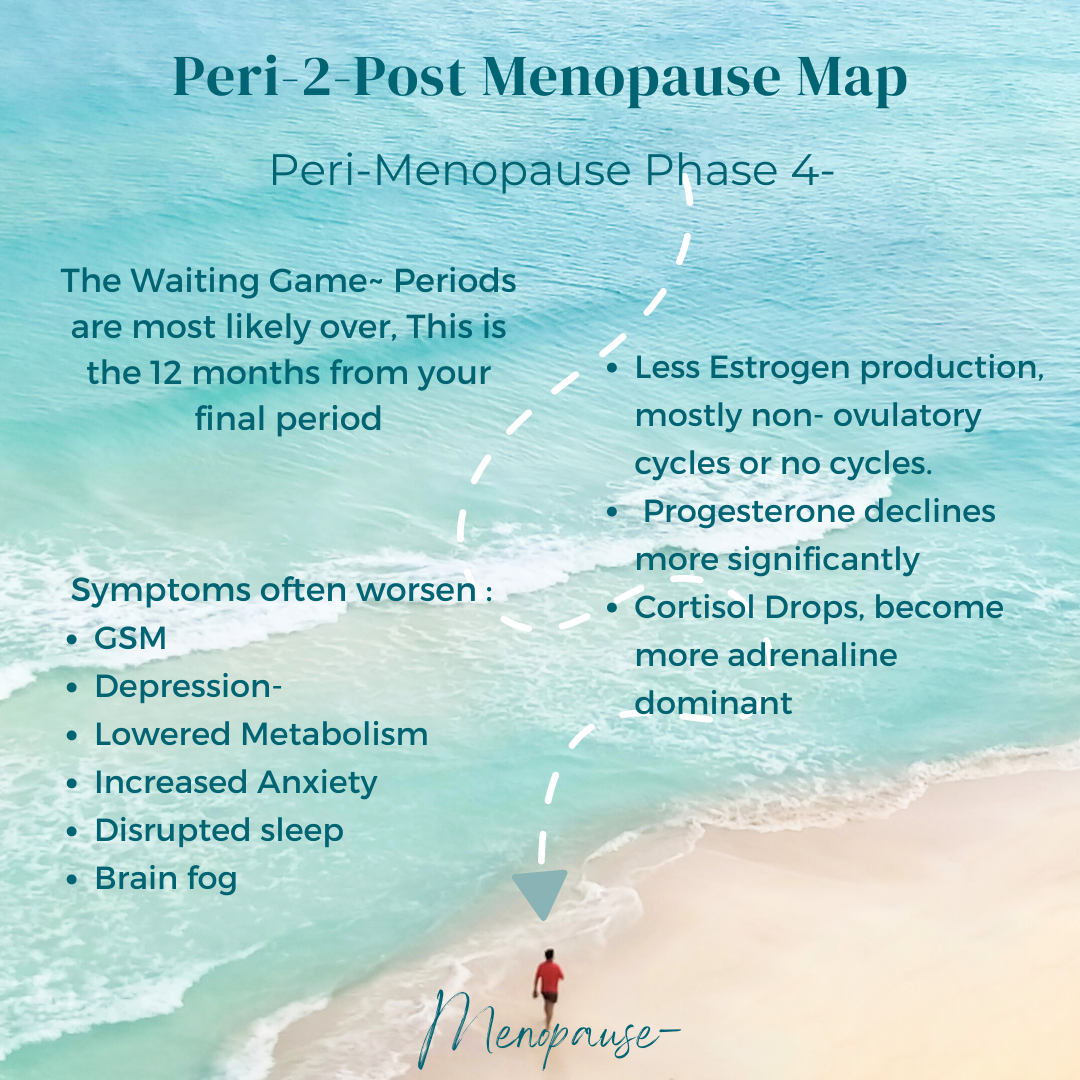This phase is characterized by a decrease in the frequency of menstrual cycles, possibly leading to their cessation as ovulation stops. However, since a full year has not yet passed, we have not formally entered menopause.
It is the consistently low levels of estrogen that results in a reduction of symptoms associated with high and variable estrogen. As a result, headaches and migraines may be becoming more stable.
It is important to note that Vasomotor Symptoms (hot flashes) may persist for some time. Depressed mood and heightened anxiety tends to grow abruptly when women approach the later stages of the Peri-2-Post Transition and experience prolonged periods without their cycles. These symptoms frequently interact, resulting in depressed women experiencing more severe hot flashes, night sweats and sleep disturbances.
Key notes
- Decreased to cessation of menstral cycles
- Reduction of High and variable Estrogen symptoms
- Low Estrogen Symptoms become more dominant
As women progress through the later phases of menopause, they are more prone to have Genitourinary Syndrome of Menopause (GSM), which affects around one-third of the population. Contrary to hot flashes, brain fog, and sleep disturbances, GSM symptoms will persist until treated.
Genitourinary Syndrome of Menopause (GSM)
Genitourinary Syndrome of Menopause (GSM) affects many menopausal women. It is a chronic condition that worsens with each passing year without estrogen. It affects approximately 30% during perimenopause; 64% one year after menopause; 84% six years later. Actually, approximately 15% of women experience GSM premenopausal, which is often caused by the BC pill, postpartum, breastfeeding, or chemotherapy.
It was once known as senile vagina and subsequently vaginal atrophy, but as time passed and research and a greater understanding grew, it was realized that there is a spectrum of symptoms that can occur, not limited to vagina.
GSM can lead to specific symptoms, such as painful sex, loss of libido, difficulty having an orgasm, and avoidance of intimacy, which can negatively impact relationships. Drying and thinning of tissues can cause vulvar burning and irritation. Urinary symptoms result from hormonal and physical changes in the urinary tract tissue, leading to an unhealthy microbiome, frequent urination, urgency, painful urination, urinary tract infections, and incontinence.

While manageable, GSM treatment is tailored to each individual. Again, we are talking bio individuality. A woman with only minor GSM might be alright with the correct lubrication. Some women may need prescription Hormone Replacement Therapy for treatment. And it is not always sufficient to treat the tissue. The underlying muscles, which have been in a shortened constricted mode for so long, may also require assistance. As a result, many women require the services of a pelvic floor physical therapist to rehabilitate their muscles.
Depression
Estrogen plays a crucial role in regulating serotonin, dopamine, and norepinephrine in the brain during menopause. Inflammation and excessive cortisol production can disrupt serotonin production, leading to a decrease in serotonin levels. Low progesterone levels also reduce GABA activity, a neurotransmitter known for its calming effects.
Women with a history of depression or postpartum depression are at a higher risk of developing major depression during perimenopause.
Perimenopausal depression is often marked by heightened irritability, anxiety, anger, paranoia, fatigue, and suicidal thoughts. Symptoms may include altered eating or sleeping patterns, concentration difficulties, anxiety, social withdrawal, and detachment from others.
